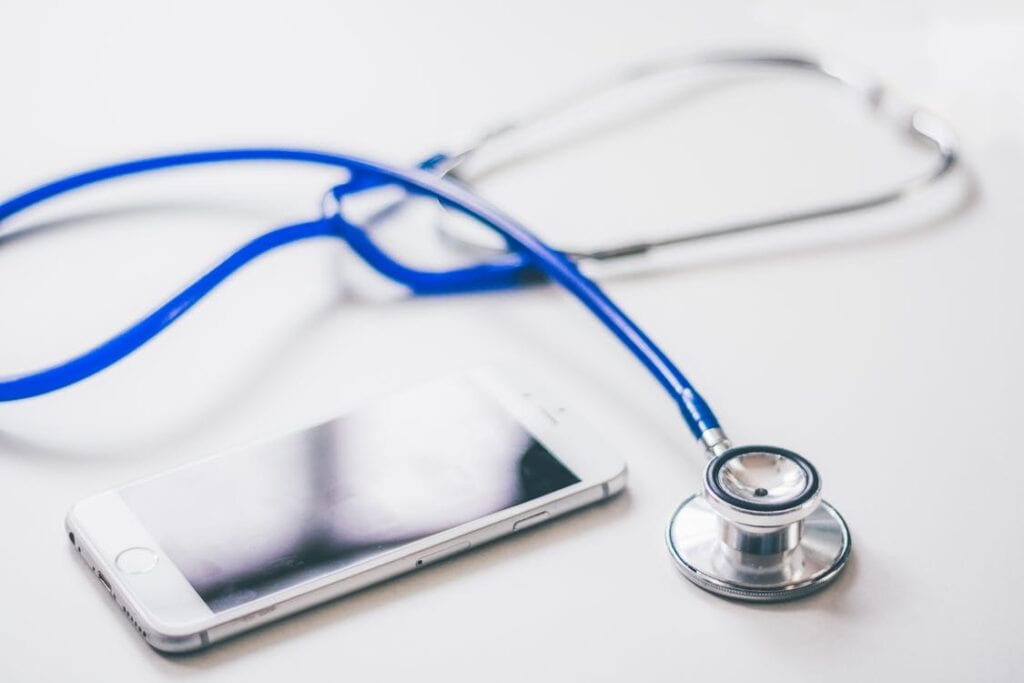There are a lot of scams to be aware of, but a lot of people have never heard of healthcare scams. According to AARP, scammers take advantage of the fact that shopping for this type of insurance can be confusing. Basically, scammers will try to sell you interior coverage or steal your money without giving you any coverage at all.
When you shop for health insurance for yourself and your family, it’s important to be aware of the risk of scammers taking advantage of you. And it’s also important to take steps to protect yourself. Check out the information below to learn about a few of the ways that you can avoid healthcare scams and keep yourself safe.
A Bit of Background on Healthcare Scams

One of the ways that scammers get in touch with people is by making phone calls. These are often in the form of robocalls. You might notice that these particular types of calls come in more often during the open enrollment period that allows you to shop for health insurance directly from providers and on the Healthcare.gov marketplace. Or, you might end up receiving calls claiming you can purchase coronavirus insurance during the pandemic.
Another way that you may be targeted by these scammers is through email. For example, you might receive a message that claims you can get a comprehensive healthcare policy at a very low cost. And these emails are designed to appear legitimate, so they might even feature well-known logos of companies that you trust.
5 Signs of Health Insurance Fraud

Getting the right health insurance isn’t an easy task. There are signs you need to look after in order to protect yourself. If this is your first time doing this, recognizing that something is wrong won’t be easy for you. Luckily, you have us to help you. Here are just some of the signs that you might have encountered a scam. If you get face to face with any of these, turn around immediately.
- If their approach is aggressive, they’re not offering you the right thing. Salespeople who are scammers want to get everything done quickly and hence the aggressive approach. It would be best if you didn’t get involved with any insurance that is advertised as a good deal, and it’s coming via email, phone, fax, or social networks.
- One of the most common promises you’ll hear from scammers is that if you sign up for their deal immediately, you’re coming out with a massive discount. This is a gigantic red flag. When you’re dealing with a real insurance company where professionals handle the conversation, you won’t be rushed to sing anything. Of course, every serious company will try to give you a deadline so that there’s no time wasted on both sides, but anything that says right now should be cast away.
- The involvement of law and legal issues should deter you away from any conversation about insurance. The first time you hear that you’re legally obliged to have that insurance, you must know that you aren’t. If you’re talking on the phone, hang up, and if you received an email be free to delete it. It reeks of fraud.
- Every serious scammer will try t persuade you to buy their insurance by trying to sound as real as they can. One of their favorite moves is the famous ERISA license. When you hear this, it’s as someone told you you’re about to be crossed over. ERISA is a federal organization, and it doesn’t provide insurance to individual providers of health insurance. The license you want them to have is on a state level issued by the state in which they operate their business.
- A medical discount card is another favorite of all fraudsters who are out there trying to harm you. If you are being offered this, then chances are there’s no discount to be found. If such a card exists, it only holds value if they have cooperation with local hospitals, doctors, or pharmacies. This can be easily checked out. Just take some of your time and talk to a local hospital or a pharmacy and ask them if they accept any kind of a discount card. If they tell you that there’s no agreement in place with any insurance company, you should know that scammers are onto you. There’s a chance that they’re telling you the truth, but you should check anyway how big the discount is and is it worth your time.
How to Protect Yourself

Beyond knowing about the threat of a healthcare scam, you can also do the following:
- Run a background check on Nuwber to verify if a phone number that’s calling you is legitimate or if it’s from a scammer. You can also use this resource to search for people and addresses to determine if someone truly is who they claim to be.
- Be aware of the warning signs that what you’re dealing with is a scammer. These include feeling really pressured to make a purchase, or being required to join some sort of association to qualify for coverage.
- Only use official websites to purchase health insurance. If purchasing directly from a provider, go to that provider’s website. If you’re purchasing a plan from the Health Insurance Marketplace, use Healthcare.gov.
- If you’re being told to make a payment in order to receive help with signing up for health insurance, don’t do it. Healthcare.gov makes it easy to get free help whenever you need it, so you should never pay for assistance.
- If you’re speaking with someone over the phone and they aren’t providing you with clear answers, or they seem to be trying to avoid giving you answers to your questions, hang up.
- If you’re on a website that’s asking you to provide personal info in order to get a quote on a health insurance plan, don’t give them that information, as doing so might put you at risk of identity theft.
Know When a Call Is Legitimate

One final note: according to Healthcare.gov, if you’ve applied for health insurance from the Marketplace, you might receive a phone call from one of their agents if they need more information or if they need to verify any information you provided. To be sure the call is legitimate, you can check your caller ID.
 Imagup General Magazine 2024
Imagup General Magazine 2024



